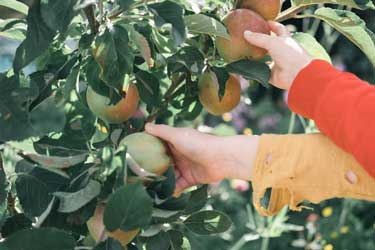“U-Pick” or Don’t — Navigating Florida’s Growing Agritourism Trend

Florida’s commercial economy has shifted focus in recent years to unite its two largest industries, tourism and agriculture.
Agritourism, otherwise known as ecotourism, promotes low impact travel across Florida and has come to enjoy certain protections and incentives (a limited liability statute and tax exemptions, to name a few).
Explaining U- Pick Farms
A popular agritourism activity is a “u-pick” farm, where private landowners or commercial retailers invite the public to, as its name suggests, grab whatever they have to offer, whether blueberries, rosemary or sunflowers.
While developing a “u-pick” farm can be a quick revenue boost with long term sustainability, where you are and what you want to do can present a unique set of challenges.
For example, while larger family farms already have the know-how to easily develop crop and transition parts of the land to “u-pick” spaces, opening your home up to the public may actually qualify a “nuisance” (despite Florida’s Right to Farm Act), and farmers can be forced to pay their neighbors when parking or waste overflow issues develop.
Zoning Matters for Your U-Pick
Moreover, while local authorities are limited in how much they can restrict agrotourism activities where property is zoned agricultural (per Florida’s agritourism statute), “substantial offsite impact” can be regulated by county and city ordinances.
Plus, in order to enjoy the limited liability statute noted above, the property must be zoned agricultural and maintain very specific signage wherever customers are. It also goes without saying (but we will), that local zoning and health authorities have a say in parking and ADA compliance, handwash sinks and public restrooms.
Which is why commercial retailers or restaurants with those build-outs already in place might consider adding a “u-pick” element to their existing space. Particularly since “u-pick” activities are likely considered lower impact than what they’re currently zoned for, rendering a variance unnecessary. Still, allowing customers to pick their own flowers, herbs or produce in a brewery or home goods store isn’t exactly written into the land use plan.
Moreover, some cities have peculiar ordinances regulating “gardens” and the like in commercial spaces.
Still, in quickly urbanizing communities with a focus on low-impact development, agriculturally zoned land may abut commercial districts where tourists are already flocking (check-out all these AR-zoned areas near downtown Mount Dora here) and present a lucrative ecotourism opportunity just off the beaten path.
Beginners Beware
“Beginner” farmers beware, however–if you’re looking to make some cash quick, be sure to skip the berries or fruit trees and opt for some pumpkins, herbs or annual flowers (hand-picked bouquet, anyone?).
Moreover, give some thought to the extra clean-up and care you’ll need to devote to your brood with all that pulling and picking. Investing in some friendly signage to let folks know what to pull and when may save you a lot of heartache.
Want to Start A U-Pick Farm?
Ultimately, no matter where you are in Florida, state and local authorities (and potentially the Feds), will be involved. But as Florida continues to embrace its producers and these direct to consumer movements, it may be worth the effort, wherever your space and however “u-pick.”
Consulting an agribusiness attorney can help you figure out how to comply with state and local reuglations.
Questions about your U-Pick farm? Let’s chat.
Contact us at contact@groveslaw.ag to schedule a consultation.
Because we’re attorneys: This blog post is provided on an “as is” and “as available” basis as of the date of publication. We disclaim any duty to update or correct any information contained in this blog post, including errors, even if we are notified about them. To the fullest extent permitted by law, we disclaim all representations or warranties of any kind, express or implied with respect to the information contained in this blog post, including, but not limited to, warranties of merchantability, fitness for a particular purpose, title, non-infringement, accuracy, completeness, and timeliness. We will not be liable for damages of any kind arising from or in connection with your use of or reliance on this blog post, including, but not limited to, direct, indirect, incidental, consequential, and punitive damages. You agree to use this blog post at your own risk. Regarding your particular circumstances, we recommend that you consult your own legal counsel (hopefully Groves Law).

